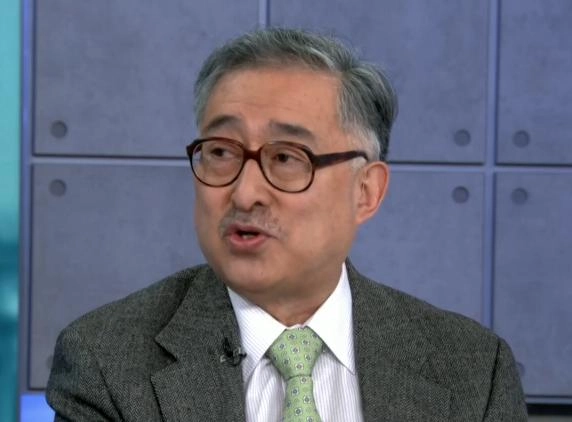Khedroob Thondup is a Tibetan writer and author based in Taiwan. He is also the Dalai Lama's nephew—the son of His Holiness' elder brother. Born in Kolkata in 1952, he is well known for publishing the book 'Dalai Lama, My Son', the autobiography by the Dalai Lama's mother—Diki Tsering.
India Narrative speaks with Thondup about the fallout from US Speaker Nancy Pelosi's visit that raised a storm in the seas around the Taiwan Strait. In an exclusive interview, Thondup, who is an independent lobbyist for the Tibetan cause, says that very few in Taiwan believe that China will hold good on its policy of 'one nation two systems' after they saw the forceful annexation of Hong Kong.
![]() Living in Taiwan for over 20 years, Thondup is creating awareness on Tibetan issues among the local people. He has published a book in Chinese so that locals are acquainted better with Tibetan history. "I came to Taiwan in 1997 when His Holiness made his first visit to Taiwan", Thondup adds.
Living in Taiwan for over 20 years, Thondup is creating awareness on Tibetan issues among the local people. He has published a book in Chinese so that locals are acquainted better with Tibetan history. "I came to Taiwan in 1997 when His Holiness made his first visit to Taiwan", Thondup adds.
Being the Dalai Lama's nephew makes him a political person. He says that he wanted to meet Pelosi but the appointment did not materialise.
Read More: There is no mention in Chinese imperial records that Tibet was ever a part of China: Sonam Frasi
Talking about the volatile situation created by China in the wake of Pelosi's visit to Taiwan, Thondup says that China is physically blockading the island from five different areas. "I do not think China will attack us immediately as this would create conflict with the US. America is treaty-bound to protect us and this could lead to bigger problems. China could get into trouble with other countries if it attacks Taiwan".
Analysing Pelosi's visit carefully, he says that there are good and bad effects of the visit. "Among the positive effects are that the US has assured Taiwan of support. Pelosi has said that Taiwan is one of the best democracies in south-east Asia. The visit also shows that there is bi-partisan support for Taiwan in the US Congress''.
"Among the bad effects is that China is not happy with Taiwan and looked at Pelosi's visit as 'interfering in our internal affairs'. But Xi Jinping may do something in retaliation as he has to deal with internal politics and face the 20th national congress of the communist party later this year. So, he has to show the public that he is strong".
About Pelosi, Thondup says that she is known as a strong supporter of democracy and has been with the minorities like the Uighurs, people in Hong Kong, the Tibetans and Taiwan.
He says that though China has promised 'one country two systems' to Taiwan also, but "we refused that. After we saw what happened in Hong Kong, we know that this policy of the communist party may let us down. People in Taiwan will not accept the 'one country two systems' type of governance", stresses Thondup.
Talking about the Dalai Lama, he says that as His Holiness has visited Taiwan many times his popularity grows with each visit. "Because of this there is a lot of interest in Tibet Buddhism. There are over 200 Tibetan Buddhism centres in Taiwan. There are lots of lamas also. Of the practicing Buddhists in Taiwan, almost 50 per cent follow Tibetan Buddhism".
Talking about the growing popularity of Tibetan Buddhism, he adds that nearly 3,000 to 6,000 Taiwanese visit Dharamsala every year to see the Dalai Lama. "Because of this more and more people in Taiwan are getting to know about the political situation in Tibet as well. The Taiwanese have also become very wary of Chinese communism because of our situation", says Thondup.
Read More:
Photo Feature: Tibetans distribute 86,000 masks and food on the Dalai Lama's 86th birthday
Covid restrictions force Tibetans in Delhi to hold low key celebrations for the Dalai Lama




















